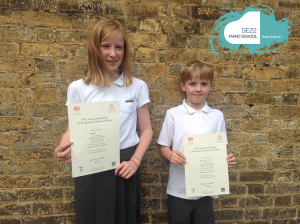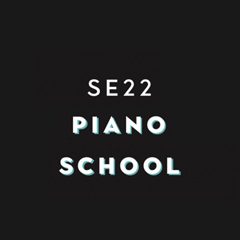August 19th 2021: We need your vote! Just one click for the SE22 Piano School would mean the world to us. Voting closes September 17th 2021. Thank you. VOTE HERE

Here is some information about your upcoming exam. This information only relates to practical graded exams. Prep Test and Theory Exam candidates should skip straight to the end of this article where you can see the confirmation of your exam entry. Please read the guide carefully as it contains four sections:
- How to Structure your Daily Practice
- All About Exams (including how to change the date and time)
- Exam Entries and Allocated Dates
- Mock Exam Forms
Section One:
How to Structure your Daily Practice
Recommended practice times:
Grade 1: 35 mins; Grade 2: 40 mins; Grade 3: 45 mins etc
How to break up the practice for Grade 1 (increase timings for higher grades)
10 minutes
1) Arpeggios, Broken Chords & Contrary Motion scales. If you make an error, start the scale and play until it is perfect (the same applies to the requirements below).
2) All minor scales, hands separately.
3) All major scales, hands separately.
Listen to how your scales should sound for Grade 1 & Grade 2. Do yours sound like this? Ask mum and dad to compare and contrast the audio clips with your playing.
5 minutes x 3 (15 minutes)*
Each piece – hands separately, then hands together. Start with the difficult sections first, do not always start from the beginning of your piece. Parents – listen to all the pieces online with your child at least twice a week (either using the official ABRSM CD or the excellent Yohondo Youtube channel). Listening to the pieces enhances your awareness of the sound, shape and patterns of the pieces, thus making it easier to learn the piece. Listen to the changes in dynamic – there may be subtle increases and decreases in volume; listen if the tempo speeds or slows; what is the character of the piece? Is it happy or sad? Major or minor? Does the name of the piece match the sound you are hearing? Has your child read the footnotes that accompany the piece? Use the Summer holidays to find out about the composer of the piece: when did they live, where were they born, what other music did they compose? Find lots of other pieces by them and use this as part of your musical practice at home during the long summer break.
*Nb five minutes is the bare minimum to practise each piece.
5 minutes
Two sight-reading exercises a day from your book (Joining the Dots, Improve Your Sight-Reading, Specimen Sight-Reading Tests). Give yourself one minute to prepare each piece. Play through any difficult bits, then attempt it hands together. Keep going if you make a mistake. Ensure the key signature is present! Then play it again and see if you can improve on your performance the second time. If you get bored of the sight-reading tests, then print off some fun pieces from the internet to learn for a sight-reading challenge, or try to learn one of the other pieces in the exam book. Learning just three pieces per grade is very limiting and does not develop your sight-reading skills. Students that become confident sight-readers are able to play several of the pieces in the graded exam book with ease. This is also a good indication of readiness for the exam when new pieces can be learned quickly as this means sight-reading skills are well developed.
5 minutes
Online aural tests are a vital part of your daily practice routine. There are 2 full sample tests available for free at e-Music Maestro. Hofnote has hundreds of tests available for around £8 for Grade 1. Subscribe to either web site and work on different exercises every day. The test is in 3 or 4 sections.
TOTAL TIME: 35 minutes (Grade 1)
Section Two: All About Exams (including how to change the date and time)
Exam Guide/FAQs
This useful guide has great advice and detailed information about your exam including the marking scheme: These Music Exams.
Deadline To Pay for Exam Entry:
Friday 13 January 2017.
Can I Pick My Exam Date?
No – the exam board allocate you a date within this range:
When Will I Receive The Date?
We will inform you as soon as the exam dates are allocated. The dates are allocated approximately two weeks before the examination. We will expect some dates to start being allocated from mid-February onwards. Do not chase your exam date. I will email this to you as soon as it is allocated.
What Days and Times are Available?
Examiners work a standard office day, Monday to Friday, 9am to 5pm during term-time. Saturdays are not an exam day (but occasionally they are used if there is an excess of candidates at an exam centre). Specific dates cannot be requested.
How do I Change my Exam Date?
Await your allocated date, then call the exam board to see what other options are available. Be prepared to travel to a different centre to increase your date and time options if an after-school slot is required: 020 7636 5400.
Where is the Exam Centre?
Blackheath Conservatoire, 19-21 Lee Rd, London SE3 9RQ.
Where is the Nearest Parking?
There is metered parking at Blackheath station.
Arriving at the Centre
Aim to arrive ten minutes early to the exam centre. There is a warm-up piano and a timetable for candidates to use the piano one after the other. The steward will advise you when you can warm-up.
The Exam Room
Leave your bags, coat, hat, gloves, drinks, snacks, mum/dad etc in the waiting room. Only take in your books for your pieces. You do not need to take in your scale, aural and sight-reading books. The use of photocopies is not permitted at all so please ensure that you have the original book for your pieces. If you need to buy books, head over to South London Music and pick up what you need well in advance of the exam date (just in case they need to order in a copy of a book).
Tips for the Day
Say “hello” to the examiner when you enter the room and “thank you & goodbye” when you leave. Eye contact is very important to establish a rapport with the examiner.
If your hair flops down infront of your face, it obstructs the examiner’s view of you. It is a good idea to clip your hair back or tie it up. Smart dress is not required but neatly presented is always a good idea. School uniform is fine. Don’t forget your piano book. (Somebody always does, don’t let it be you! There are no copies of the exam books available on the day).
Exam Programme Slips
You can save a bit of time on the day by filling this slip in advance (only fill in one copy). You can choose to play your pieces in whichever order you like. Bring the form to your lesson for your teacher to fill in if you are unsure what to do. Prep test candidates do not need to fill this in.
Exam Results
Graded piano exam results take 2 – 3 weeks approximately to arrive. Theory exam results take at least a month. I will send you the results as soon as I receive them so please do not chase 🙂
Watch an Actual ABRSM Exam
Here is a useful insight into what to expect on the actual day of the ABRSM examination.
Here is the Grade 1 examination video and also the sample of the Sight Reading piece:
http://www.youtube.com/watch?v=D4FBBFsLNek

Perform in Public
Ask if you can play your pieces at school to your classmates or in school assembly if your school allows you to do this. You can also host a recital at home and invite over friends, neighbours and family members to come and listen to you play. The more you perform, the more confident you will feel on exam day. Our next performance is the annual student recital on 22 January 2017. [Register]
Section Three: Exam Entries and Allocated Dates
Grade 2
William
Exam Dates will appear here once allocated (please do not chase). See above for information on how to change the exam date if required.
BLACKHEATH CONSERVATOIRE, 19-21 LEE ROAD, SE3 9RQ
Section Four: Mock Exam Forms
Please print several Mock Exam Forms and bring to your lesson each week.

